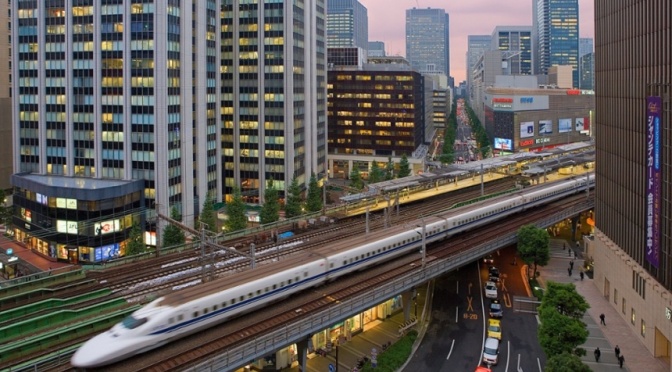Meanwhile, the bullet train has sucked the country’s workforce into Tokyo, rendering an increasingly huge part of the country little more than a bedroom community for the capital. One reason for this is a quirk of Japan’s famously paternalistic corporations: namely, employers pay their workers’ commuting costs. Tax authorities don’t consider it income if it’s less than ¥100,000 a month – so Shinkansen commutes of up to two hours don’t sound so bad. New housing subdivisions filled with Tokyo salarymen subsequently sprang up along the Nagano Shinkansen route and established Shinkansen lines, bringing more people from further away into the capital.
– How the Shinkansen bullet train made Tokyo into the monster it is today, The Guardian
It is standard practice for a Japanese company to pay for an employee’s commute expenses. The government will not tax the company nor will the employee be taxed for the cost of their monthly commute pass. In a sense, the government bears the cost of transporting a company’s workforce, which allows them to spend their resources on locating themselves as close as they can to their customers and vendors who are, mostly, in Tokyo.
As the Guardian article points out, this has allowed for a network of “bed towns” to spring up along the spurs of each of the high speed rail lines to branch out from Tokyo supporting further centralization of the city. Think of Tokyo as a the capital of government, entertainment, media, finance, and business all rolled into one megalopolis. The equivalent of Washington DC, Los Angeles, New York City, and Chicago all rolled into one. It is very difficult for a business to be located outside of this center and succeed and, with the commute subsidy, very little reason to do so.
The Japanese commute expense subsidy gives incentives for people to use the public transportation industry so, as a result, Japan has one of the best public transportation systems in the world.
Contrast this with how the tax incentives in the United States work. Mortgage interest is by far the biggest deduction you can apply to your income which supports the housing industry and, more directly, the banks. While this has allowed for distributed population centers to pop up around the country where ever people decide to invest in their home but has also contributed to successive housing bubbles.
Which would you rather have? A kick-ass public transit system that efficiently gets you where you want to go or an over-valued ranch house in the suburbs and an hour commute by car each way into work?

Leave a comment